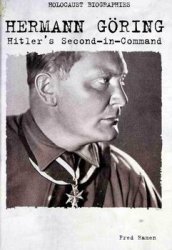The characterization of one’s loyalty belonging primarily to one’s religious tradition rather than to philosophy per se is certainly true also for the great thirteenth century Christian philosopher, Thomas Aquinas. The influence of the Aristotelian tradition and that of Maimonides on Thomas’ political thought is striking. Yet, Thomas makes use of the philosophic tradition only insofar as it does not negate any of Christianity’s basic tenets. He is closer to Halevi than Maimonides in this matter. Thomas’ God is a very personal God, as is true of any Christian who believes in the Incarnation, a belief that flies in the face of the Aristotelian tradition.
In his Summa theologica (Q90-108) Thomas distinguishes between different types of law in a much sharper and far more detailed manner than any of his predecessors. He is a strong proponent of the idea of an eternal natural law that is known by human beings by virtue of a reason that partakes of divine reason. He regards human law as the application of natural law to particular circumstances by means of practical reason. Thomas remains firmly in the Aristotelian tradition on these points. Yet in addition to natural and human laws, Thomas posits the existence of divine law, which is not simply the ideal form of natural and human laws by another name, and he goes to great lengths to show its necessity. Law as such has as its final end happiness, but as Thomas’ discussion clarifies, both natural law and the human law derived from it are incapable of directing human beings to eternal happiness. Only the divine law can lay down the ideal external and internal acts by which to attain this happiness. For Thomas, as in the case of Halevi, only God knows the path by which God is to be reached, and this is made known only by revelation. Thomas further argues that only the divine law is concerned with humanity’s relation to God while human laws are concerned solely with human relations. Even in those cases that human law devises institutions relating to divine matters, it is only for the sake of human relations (Q99, A3). Echoes of this view can be seen already in the thought of Halevi and Maimonides.
Yet Thomas, as opposed to Halevi and Maimonides, accepts the existence of two divine laws and not one - the one contained in the Old Testament and the one contained in the New Testament. In order to account for two divine laws he must accept a historical model, one that posits progress over time in which the people become prepared for a more perfect law. The New Testament with its teaching and commands is the Law that leads to divine grace and eternal felicity by being a law that leads to perfect virtue (Q91, A5). He assigns an intermediary role to the
Old Law. It goes beyond human law that is concerned only with earthly good by paving the way for the New Law; it does not in itself, however, make its adherents fit to attain everlasting happiness. Thomas devotes much attention to the divine wisdom as it is reflected in all aspects of the Old Law before coming on to show how the New Law completes and perfects it by directing more of its attention to the internal state of human beings and bringing about the reception of divine grace.
Thomas also distinguishes the Old Law and the New Law by their immediate agents. The New Law was transmitted directly by God, while the Old Law was given to Moses by God through the intermediary of the angels (Q98, A3; though compare to Quaestiones disputatae 12, 14 where Moses receives intellectual vision without angelic help) - a view that characterizes prophecy in general in Maimonides’ thought, but not Mosaic prophecy given directly by God, at least according to his exoteric view on the matter. It should be noted that in other writings Thomas is influenced both by Maimon-ides’ view of the special nature of Mosaic prophecy as well as his naturalistic theory of prophecy in general. Nevertheless, he breaks with Maimonides by treating the biblical prophets as attaining their prophecy by divine grace and not because of their natural dispositions. Nor is the particular content of their prophecy in his view dependent upon the faculties of the prophet’s soul, or even on the angels who serve as intermediaries, but on God. For all of Thomas’ indebtedness to Aristotelian thought and his acceptance of much of their view of the natural order, in all matters pertaining to revelation he ascribes to God a personal role.




 World History
World History









